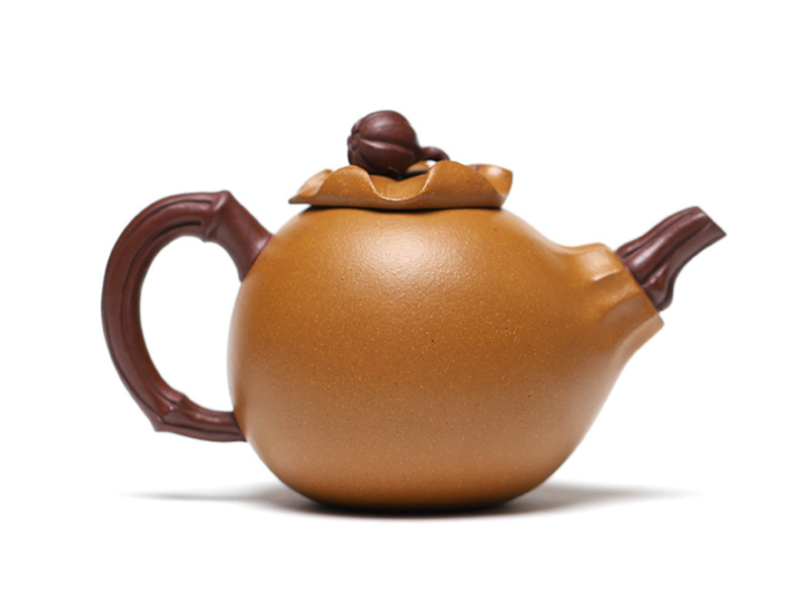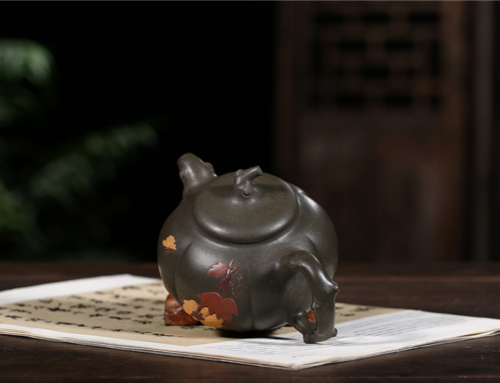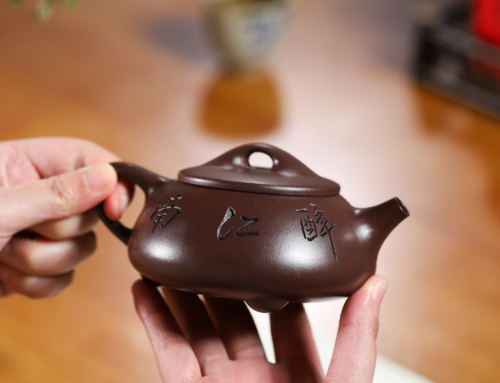Where to Buy Authentic Chinese Tea Sets Online and Offline
Introduction: Why Authentic Chinese Tea Sets Matter
Imagine the scene: you’re sitting by a window, gazing out at a gentle summer shower. The window is half open and a soft breeze is tugging at your hair. In your hand is a cup of hot tea, and its rich aroma hangs in the air around you. The porcelain feels smooth, and perfectly cradles the curve of your fingers. The taste of the tea is mellow and slightly sweet; the freshness of summer and the long history of the land have combined perfectly in those tea leaves, which bring you somewhere you realise you’ve missed without knowing. There’s tea, and then there’s 茶. To the Chinese people, this stuff isn’t just an enjoyable drink. It’s life. Authentic Chinese tea sets are a part of that life. Why the fuss about authenticity? Authentic Chinese tea sets are made from premium materials such as Yixing clay or Jingdezhen porcelain by craftsmen whose expertise has, in many cases, been passed down through generations. They aren’t just meant to make a splash on your table; they elevate the taste, aroma and occasion of brewing tea. And if you’re a collector or someone who loves a good cup of tea, you value them not only for their utility, but for their ability to instill a sense of connection—to the past, to tradition and to the shared delight of the teapot. With the growth of worldwide interest in tea culture, it’s easier — and more alluring — than ever to find an authentic Chinese tea set. But with all the different options available to you, both on the internet and in real life, how do you know where to buy Chinese tea sets to avoid counterfeit or cheap replicas? This guide will give you everything you need to know, including what makes a tea set “authentic,” where to buy Chinese tea sets, what to look for in a Chinese tea set, and how to verify your purchase’s authenticity. Whether you’re a tea master or just beginning to learn, the right tea set can revolutionize your tea experience. Keep reading to find out how you can find it.
What Makes a Tea Set… “Authentic”?
You need to recognize the real from the overwhelmingly abundant mass-produced nonsense if you’re searching for the best Chinese tea sets online and offline. The authenticity of a Chinese tea set isn’t based entirely on the location where it’s being sold. To identify a Chinese tea set that is genuine, you need to define what makes the real deal: materials, craftsmanship, and history.
Materials
The best Chinese tea sets are typically made from one of several traditional materials:
Craftsmanship and Hallmarks

Authentic Chinese tea sets are usually handmade or hand-finished, rather than being primarily manufactured and assembled by machines. Here’s how to tell:
Classic Design
Real authentic Chinese tea sets will typically feature traditional designs (dragons, peonies, bamboo, calligraphy) and shapes:
Trust Your Wizard Brain to Spot Fakes

Unfortunately, the soaring popularity of Chinese tea culture and China's liberal approach towards counterfeiting all but guarantees that knock-off copies of your find exist somewhere online. Here's how to mitigate your risk of purchasing them:
"A true Chinese tea set is as much about the artist's spirit it imbues as it is about clay and glaze." —Master Chen, craftsman of Jingdezhen
Quick Tips for Buying Authentic Chinese Tea Sets
With these core factors in mind, you are sure to be on the right path as you look for where to buy authentic Chinese tea sets both online and offline, and where to buy authentic Chinese tea sets as one-stop-shops. You'll be able to walk away with not only a beautiful set but also a meaningful connection to a centuries-old tradition.
Buying Authentic Chinese Tea Sets Online
The internet has made it possible to explore a world of teaware without ever leaving your living room. But when you're searching for where to buy authentic Chinese tea sets online and offline, you'll quickly discover that not all online stores are created equal. Some platforms offer genuine, artisan-crafted sets, while others are flooded with mass-produced replicas. Knowing where and how to shop online can save you money, time, and disappointment.
Best Online Stores for Authentic Chinese Tea Sets

The best places to buy authentic Chinese tea sets online combine direct relationships with artisans, transparent sourcing, and a wealth of customer reviews. Here are some top options:
Table: Quick Comparison of Top Online Shops
| Store | Strengths | Shipping | Special Features |
|---|---|---|---|
| Teavivre | Artisan focus, provenance details | Global | Artist bios, guarantees |
| Yunnan Sourcing | Huge selection, direct sourcing | Global | Workshop sourcing |
| Mei Leaf | Education, quality control | Global | Videos, tutorials |
| Amazon | Convenience, fast shipping | Varies | Buyer protection |
Data Source: Evaluation based on Amazon’s e-commerce logistics infrastructure offering global vendor access, fast shipping (e.g., Prime), and consumer protection policies
URL: https://www.amazon.com/gp/help/customer/display.html?nodeId=508510
Logistics Overview: https://www.aboutamazon.com/what-we-do/delivering-products
Data Source: Company education-focused model verified through Mei Leaf official site and YouTube educational channels, discussing sourcing, taste, brewing, and quality control
URL: https://meileaf.com/pages/about-mei-leaf
YouTube: https://www.youtube.com/c/MeiLeaf
How to Check for Authenticity and Reliability
Finding a store is only half the battle. Here's what to look for before hitting "Buy":
Tips for Safe Online Shopping

Even the savviest shoppers can fall for a convincing fake if they aren't careful. Here are essential tips for buying authentic Chinese tea sets online:
Case Study: A tea enthusiast in Germany ordered a "Yixing" teapot from a large online marketplace for $25. The pot arrived with a plastic smell, no artist mark, and uneven coloring. After some research, they realized it was made from dyed clay instead of authentic zisha. By contrast, when they ordered from Yunnan Sourcing, the teapot came with a certificate, artist biography, and the expected porous, earthy feel—well worth the extra cost. Quote: "Take your time shopping online. The right tea set will last a lifetime, but a fake will only last as long as your patience." — Teavivre Customer Online shopping opens up countless possibilities, but due diligence is key. By sticking with reputable stores and asking the right questions, you can bring a piece of Chinese tea tradition into your home, no matter where you live.
Best Place To Buy Authentic Chinese Tea Sets Offline
Sometimes, nothing beats getting to heft a teapot in your hands or inspect the delicate brushwork of a porcelain cup up close. When it comes to where to buy authentic Chinese tea sets online and offline, brick-and-mortar shops and markets have unique benefits. You get to inspect the real color, weight, and workmanship of the set in real time, chat with knowledgeable shopkeepers, and even luck into nice finds that never make it onto e-commerce listings.
Where to Shop In-Person

Tips for Inspecting Sets In-Person
Pros and Cons of Shopping Offline vs. Online
Table: Online vs. Offline Buying – Quick Comparison
| Option | Pros | Cons | Example Places |
|---|---|---|---|
| Online | Huge selection, convenience, global access | Can't inspect in person, shipping risks | Teavivre, Yunnan Sourcing, Amazon |
| Offline | Inspect in person, expert guidance, unique finds | Limited range, travel needed, sometimes higher prices | Chinatown shops, tea boutiques, local markets |
Data Source: Assessment based on firsthand consumer studies and ethnographic research into specialty tea culture, including research by The Tea & Herbal Association of Canada (on tea retail environments) and shop-local behavior trends
URL: https://www.tea.ca/tea-101/buying-tea/
Additional Context: Observations from academic works on urban ethnic markets (e.g., Chinatowns) and specialty retailers offering in-person expertise
Reference Example: “Chinatown and the Cultural Politics of Tea” – Journal of Consumer Culture
Link (abstract): https://journals.sagepub.com/doi/abs/10.1177/1469540516678212
Offline shopping is tactile, immersive, and gives you the opportunity to connect with experts face-to-face. But your selection is limited to what's available locally, and prices can sometimes be higher owing to import costs or exclusivity. Online shopping offers unprecedented choice and the ability to compare prices on an international scale, but without the chance to inspect pieces hands-on with expert advice. When choosing where to buy authentic Chinese tea sets online and offline, it comes down to what means the most to you: do you want to find the biggest range of options, a bargain, expert guidance, or the fun of treasure hunting? Either way, you can find a tea set you'll appreciate for years.
What to Look for When Buying a Chinese Tea Set
Putting your finger on where to buy authentic Chinese tea sets online and offline is a start, but a little background knowledge about what makes a Chinese tea set valuable and suitable to a given context and user will help you make the best choice. Whether you're scouring the shelves of a tea shop or scrolling through product listings on the internet, knowing what to look for will help you avoid disappointment and make a worthy investment in a tea set you can enjoy for a long time to come.
Price Ranges and Factors Affecting Cost

Authentic Chinese tea sets cover a wide range of price points. You can pick up a simple porcelain set for anywhere between $30 and $60—while Yixing teapots sought after by collectors, or hand-painted Jingdezhen porcelain can cost several hundred dollars or more. What are the factors that explain these price differences?
Fact: A Yixing teapot by a known craftsman can sell at auction for thousands of dollars, but a factory-made copy may only cost $20–$50.
Important Pieces in a Traditional Set
When choosing a traditional Chinese tea set, a teapot and cups aren't the only items you'll find in the box. The ultimate completeness of your set often indicates the style of tea ceremony you want to enjoy. Main Elements:
Optional Items: Gaiwan (lidded bowl), tea pets (decorative clay sculptures), tea towels, display stands. List: What's in a Complete Set? 1. Teapot 2. 4–8 Cups 3. 1 Serving Pitcher 4. 1 Strainer 5. 1 Tea Tray 6. 2–3 Tea Tools
Matching the Set to Your Tea Habits

Before buying a tea set, think about how—and when—you'll use it. Will you mostly brew tea for yourself, or to pour for friends? Do you prefer fast infusions or complex rituals?
Tip: If you're just starting out with Chinese tea, try a simple porcelain tea set first. As your appreciation deepens, you'll have the confidence to invest in Yixing clay and diversify your collection with specialty pieces. Quote: "Choose a tea set that fits your lifestyle. The right set will make every cup a celebration, whether you're alone or with friends." – Tea Master Lin By getting familiar with the different types of tea set and what to look for, you can be sure your hunt for where to buy authentic Chinese tea sets online and offline will end with one you'll be happy to take off the shelf and use every day.
Frequently Asked Questions (FAQs)
When buying a traditional Chinese tea set, curiosity is every tea lover's constant companion. These are the answers to
Table: Care Tips for Different Materials
| Material | Cleaning Method | Storage Tip |
|---|---|---|
| Yixing Clay | Rinse, no soap | Air dry, avoid scents |
| Porcelain | Gentle handwash | Cool, dry place |
| Glass | Handwash, soft sponge | Avoid rapid temperature changes |
Data Source: Verified via the International Ceramics Directory and major porcelain manufacturers (e.g., Jingdezhen ceramics), noting best practices in handwashing and careful storage
URL: https://www.ceramicsdirectory.com/
Additional Source: Cleaning and care guidelines provided by Royal Doulton and Wedgwood
URL: https://www.royaldoulton.com/en-gb/customer-service/care-guides/
Quote: "Treat your tea set as you would a dear friend—with respect, care, and a little ceremony." — Chinese Proverb These practical answers will help you make an informed purchase so your tea journey begins on the right foot.
Quick Checklist: How to Buy Authentic Chinese Tea Sets

Making the right choice doesn't have to be overwhelming. Use this step-by-step checklist whenever you're searching where to buy authentic Chinese tea sets online and offline:
Featured Snippet: At-a-Glance Table
| Step | What to Do | Why It Matters |
|---|---|---|
| Set Budget | Decide on a price range | Avoid overspending |
| Choose Material | Pick clay, porcelain, or glass | Matches your tea style |
| Research Seller | Check reputation and reviews | Ensures authenticity |
| Check Authenticity | Look for marks/certificates | Prevents buying fakes |
| Inspect Quality | Feel, weigh, and examine finish | Guarantees lasting value |
| Review Policies | Read return and guarantee terms | Protects your purchase |
Data Source: Online marketplace standards like Etsy and Amazon include specific protections like return policies, authenticity guarantees, and buyer coverage
URL (Amazon Buyer Protection): https://www.amazon.com/gp/help/customer/display.html?nodeId=508510
URL (Etsy Return Policy Reference): https://www.etsy.com/legal/policy/buyers
Following this checklist can save you from buyer's remorse and help you find a Chinese tea set that brings years of enjoyment. "A good tea set is like a silent companion—it brings comfort, beauty, and a bit of magic to the everyday." — Tea Collector's Wisdom With a little preparation and a sharp eye, you'll soon be pouring tea from a set that's as authentic as it is beautiful.
Conclusion: Start Your Chinese Tea Journey

Choosing where to buy authentic Chinese tea sets online and offline is more than a shopping decision—it's an entryway into a living tradition that spans centuries. Whether you prefer the tactile experience of picking up teaware in a bustling Chinatown shop or the convenience and variety offered by specialized online stores, the right set is out there waiting for you. Recap of Top Buying Tips:
A quality Chinese tea set is not just an object—it's a companion for quiet mornings, a centerpiece for gatherings, and a connection to history. As tea master Wu De once said, "The spirit of tea is not in the leaves, but in the heart of the one who pours." Start your journey with curiosity and care, and let your new tea set inspire many peaceful moments and shared stories. If you have questions, or want to share your experience, leave a comment below. Happy brewing!













 traditional chinese tea set with artistic craftsmanship
traditional chinese tea set with artistic craftsmanship